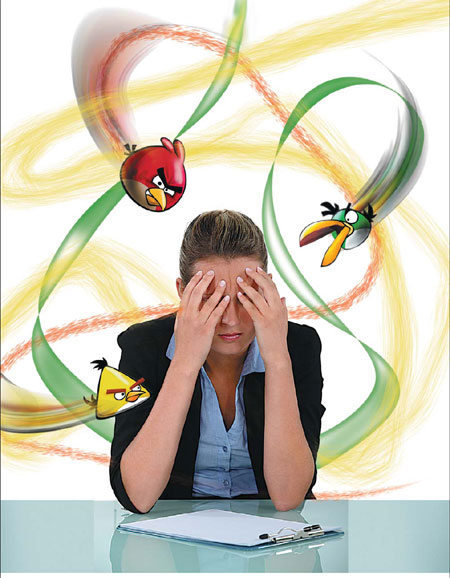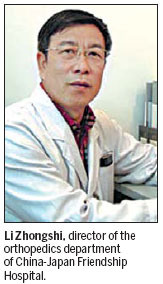That spinning feeling

Dizziness is often attributed to tiredness, but it can be the forebear of more serious illnesses, as Liu Zhihua finds out from a panel of experts.
It is often regarded as a symptom more than as an illness itself - and therein lies the difficulty of diagnosis.
When patients suffering from giddiness consult a doctor, they may not get an instant answer because dizziness can be caused by a multitude of medical conditions, including stroke, sudden deafness, cervical spondylosis, depression and anxiety, among many others.
But, it is still important to get a proper diagnosis because being giddy all the time can be very debilitating, especially for the elderly, and affects the quality of life.
Sometimes it can even be life threatening, when it results in falls and fractures.
It is such a common and puzzling complaint that a group of experts gathered at Beijing's China-Japan Friendship Hospital recently to examine the issue and seek solutions.
According to Li Zhongshi, director of the hospital's orthopedics department, 8 percent of the Chinese population suffers from dizziness.
Among women older than 65, the occurrence rate is 57 percent, and among men of the same age, it is 39 percent.
Also, more and more young people are reporting that giddy feeling, Li says.
Tang He, a 21-year-old Chinese studying in the United States, says she used to have panic attacks when she got giddy. She suffered neck aches, to which she did not pay much attention because she had always had migraines.
In April, she started getting vertigo and the strange sensations became more intense. She went to her college doctor and got an X-ray but failed to get a satisfactory diagnosis.
Related: HIV/AIDS patients' children suffer in silence
During her summer vacation back home, she went to an orthopedist and finally got diagnosed as suffering from cervical spondylosis - a condition caused by the degeneration of the cervical vertebrae.
Jiang Zidong, an otolaryngologist who deals with ear, nose and throat health problems at the Peking Union Medical College Hospital, agrees that patients should insist on a proper examination.
"They should go to a doctor for an accurate diagnosis at the first attack, especially when they are unsure of the cause.
But, there are so many possibilities that, even for doctors, it is hard to make a correct diagnosis, Jiang says.
In Jiang's hospital, dizziness accounts for about a third of all clinical visits, and the symptom is also the number one reason why the elderly are sent to the emergency room - far more than for strokes and headaches.
Patients generally fall into two categories, Jiang says.























